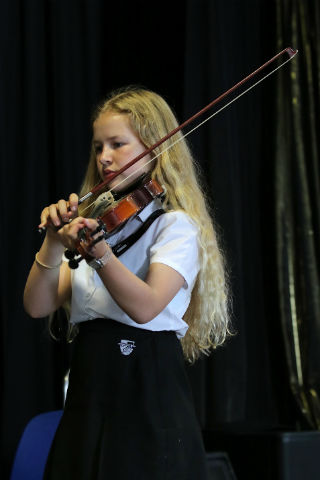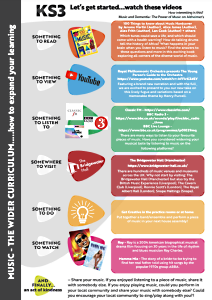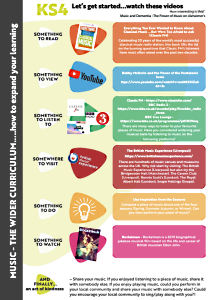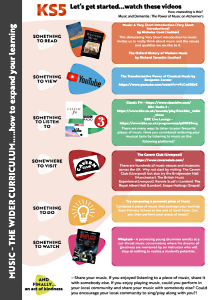
Telephone - 01628 483 752
Company Registration No.07690054
- Welcome
- News & Events
- About Us
- School Life
- Canteen & Catering
- Careers Programme
- Duke of Edinburgh’s Awards
- House System
- Library
- Lockers & Bicycle Racks
- One to One Laptop Scheme
- Parents’ Evenings
- Prefects: Sixth Form & Year 11
- Safeguarding
- School Nurse
- School Transport
- Student Support and SEN
- Teacher Training
- Transition to Year 7
- Uniform, Hair, Jewellery, Phones
- 6th Form
- Curriculum
- Parent & Carers
- Attendance Guide
- Bucks Family Information Service
- Bucks School Transport
- Communication & Catering
- Friends of Great Marlow School
- Information Evenings
- Gift Aid
- Letters Home
- Mental Health Support
- Online Safety Resources
- Parent/Carer Services
- Progress Review Guides
- School Uniform Shops
- Special Educational Needs
- The Voice – School Newsletter
- Student Area
- Sport
- Gallery
Music
 ABOUT MUSIC
ABOUT MUSIC
Learning music not only improves the musical skills of performing on a range of instruments; composing music in different styles; and listening to and learning about many different styles of music, but also helps development in many other ways, too. “The benefits of a quality music education are those of increased self-esteem and aspirations; improved behaviour and social skills; and improved academic attainment in areas such as numeracy, literacy and language.” Government Review of Music Education 2011.
 MUSIC AT GREAT MARLOW SCHOOL
MUSIC AT GREAT MARLOW SCHOOL
The Music Department at Great Marlow has purpose built music classrooms with a suite of computers and musical keyboards. Lessons involve singing, as well as a wide variety of classroom percussion, guitars and other instruments. The practice rooms, situated close to the music classrooms are used during music lessons, also it is here that individual instrumental lessons are taught.
Staff aim, in this academic and practical subject, to apply learning in a practical and supportive environment. This is achieved through individual, pair, and group work, which builds confidence and aids social development. ICT is used in music lessons, including using Sibelius, O Generator, Cubase, Pro Tools, Logic and Garage Band software.
Instrumental lessons are available in the Music Department on the following instruments: brass, woodwind, violin, guitar, piano, voice and drums.
WIDER CURRICULUM
The Wider Curriculum allows students to take a further interest in their subjects and subject related material they study at school. The Wider Curriculum also enables parents and carers to actively engage with the opportunities offered by each department. Each PDF is hyperlinked, so when you click on them, the links will take you to areas where you may read, view, listen, visit and be creative.
| MUSIC WIDER CURRICULUM KS3 | MUSIC WIDER CURRICULUM KS4 | MUSIC WIDER CURRICULUM KS5 | ||
 |
 |
 |
KEY STAGE 3 MUSIC
1 hour per week
Students follow a broad and balanced curriculum looking at music of different styles and cultures. Below is an outline of the teaching scheme of work.
Year 7
| Term 1 | Find Your Voice |
|
| Harry Potter |
|
|
| Term 2 | Hall Of The Mountain King – Grieg |
|
| Samba Music |
|
|
| Term 3 | Making Connections |
|
| X Factor |
|
Year 8
| Term 1 | Reggae |
|
| Musicals |
|
|
| Term 2 | Blues and Jazz |
|
| Classical Arrangements |
|
|
| Term 3 | Stomp |
|
| Song Writing |
|
Year 9
| Term 1 | Film Music |
|
| Term 2 | Music Technology/Film Music |
|
| Bach to Bhangra |
|
|
| Term 3 | Hip Hop |
|
KEY STAGE 4 MUSIC
Board WJEC Eduqas – 3 hours per week
Component 1: Rhythm and Metre
- Note values and rests
- Time signatures: simple v compound
- Rhythmic dictation
- Performing rhythms
- Setting rhythms to text
Component 2: Composing
- Total duration of compositions: 3-6 minutes
- Non-exam assessment: internally assessed, externally moderated 30% of qualification
- Two compositions, one of which must be in response to a brief set by WJEC.
- Learners will choose one brief from a choice of four, each one linked to a different area of study. The briefs will be released during the first week of September in the academic year in which the assessment is to be taken.
- The second composition is a free composition for which learners set their own brief.
Component 3: Appraising
- Written examination: 1 hour 15 minutes (approximately)
- 40% of qualification
- Assessment against Grade 3 standard
- This component is assessed via a listening examination
- Eight questions in total, two on each of the four areas of study
- Area of study 1: Musical Forms and Devices
- One question on set work
- Mozart – Eine Kleine Nachtmusik 3rd Movement – Minuet and Trio
- Area of study 2: Music for Ensemble
- Area of study 3: Film Music
- Note values and rests
- Time signatures: simple v compound
- Rhythmic dictation
- Performing rhythms
- Setting rhythms to text
- Area of study 4: Popular Music
- One question on set work
- Since You’ve Been Gone – Rainbow
KEY STAGE 5 MUSIC
Music A-level Equqas – Full A-level 2 Year course
Course Outline
1. PERFORMANCE 35% of the qualification. Assessed by external examiner.
Students give a performance consisting of a minimum of three pieces. At least one of these pieces must be as a soloist. The other pieces may be either as a soloist or as part of an ensemble or a combination of both.
One piece must reflect the musical characteristics of one area of study. At least one other piece must reflect the musical characteristics of one other, different area of study.
Duration 10-12 minutes.
2.COMPOSITION 25% of the qualification.
Two compositions, one of which must reflect the musical techniques and conventions associated with the Western Classical Tradition and be in response to a brief set by WJEC.
Candidates will have a choice of four set briefs, released during the first week of September in the academic year in which the assessment is to be taken. The second composition is a free composition.
3. APPRAISING Written Examination 40% of the qualification.
The written exam is based around three areas of study:
Area of Study A: The Western Classical Tradition (The Development of the Symphony 1750-1900)
which includes two set works.
- Symphony No. 104 in D major, ‘London’: Haydn
- Symphony No. 4 in A major, ‘Italian’: Mendelssohn
Area of study B: Rock and Pop
Area of study E: Into the Twentieth Century
which including two set works:
- Trio for Oboe, Bassoon and Piano, Movement II: Poulenc
- Three Nocturnes, Number 1, Nuages: Debussy
Questions set:
- analysis of the set work with a score
- an extended response on a wider context
- extracts of unprepared music with and without a score
- comparison questions – this component includes a listening examination
Duration of written examination 2 hours 15 minutes.
Entry Requirements
Students should have achieved at least a Grade 6 in GCSE Music and be able to play pieces of the equivalent standard of Grade 6.
Students who received a Grade 5 at GCSE may also be permitted after a discussion with the Head of Music.
A minimum of four and a half minutes of music in total is required.